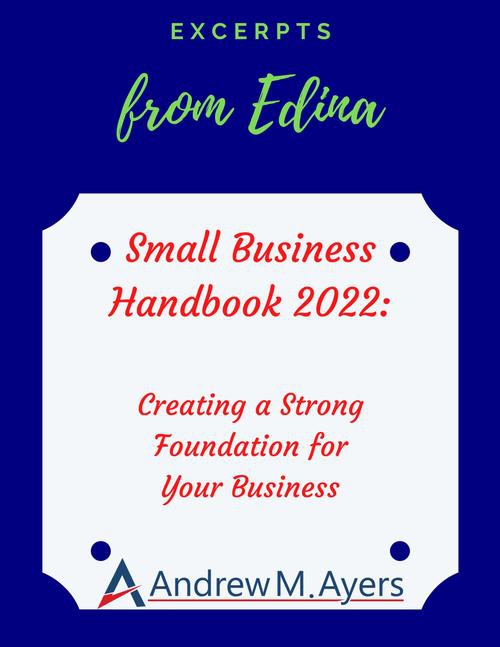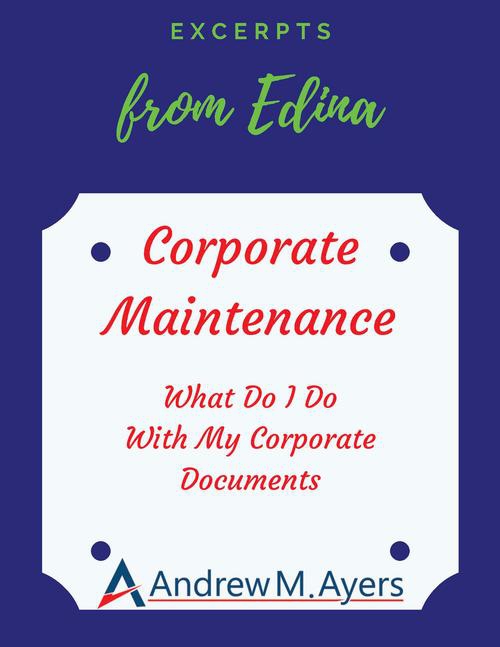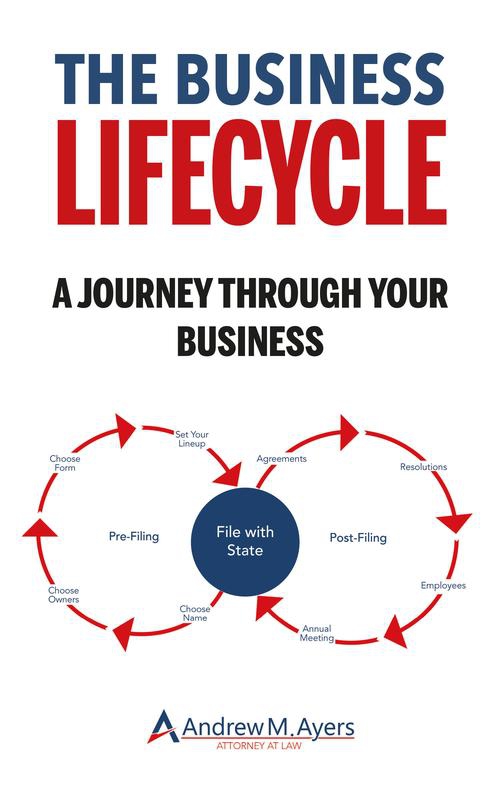Our final step in the Business Lifecycle is your Annual Meeting. At this point, we've chosen the name for your business, we’ve chosen the owners, the form, we've set your lineup, we filed with the state, we've set up your corporate agreements, we've probably put together some resolutions, hired some employees, and we've now had a great first year in your business. But it's time for your Annual Meetings.
What is an Annual Meeting?
In many states, your annual meeting is required on a yearly basis, hence the name. Now you may read in the news where people like Warren Buffett will have a well-attended annual meeting or Amazon will rent out entire theaters and have all of their shareholders present for the meetings. That's not what you have to do. You don't have to get the local ballroom at your Hilton and pay for catering and have everybody come to your meeting.
In fact, what you normally have to do is prepare a notice of the meeting, and have that notice sent to all of the owners of your company or your shareholders, with a certain amount of time before the meeting itself. And depending on the business to be conducted at that meeting, you may or may not even have to have a meeting.
Many companies with only a couple of owners or single owner will waive the need for an in-person meeting and “hold” their meeting on paper. That will mean that you will simply prepare what is called corporate minutes that document what was done at the annual meeting. Often the annual meeting will simply say that the floor was open to new business, no business being heard, we've reviewed the financials from the year before, things look good, and now we're closing the meeting until next year.
Some states require that you file the minutes of your annual meeting or some kind of confirmation of the meeting. Other states just trust that you do it, but regardless of where you are, you want to make sure your annual meeting minutes are put together, and a copy of that is put with your corporate documents. This goes back to what we talked about when we set our lineup and filed with the state.
If you choose to use a corporate filing service they've hopefully given you a nice binder, with different tabs. You'll notice that one of those tabs will be for Annual Meetings. You'll keep a copy of your minutes there so that if you ever need to refer back to them, or if for some reason someone needs to inspect your book and records, you have a copy of your minutes there. And if you create these minutes and you have an attorney for the company, you want to make sure that the attorney has given a copy of your minutes as well.
Next Steps
If it's that time of year and you need to prepare for your annual meeting but aren't sure where to start, let's set up a Legal Strategy Session to help you take those next steps. If you'd also like more information, you can download the Business Lifecycle report for more information.





